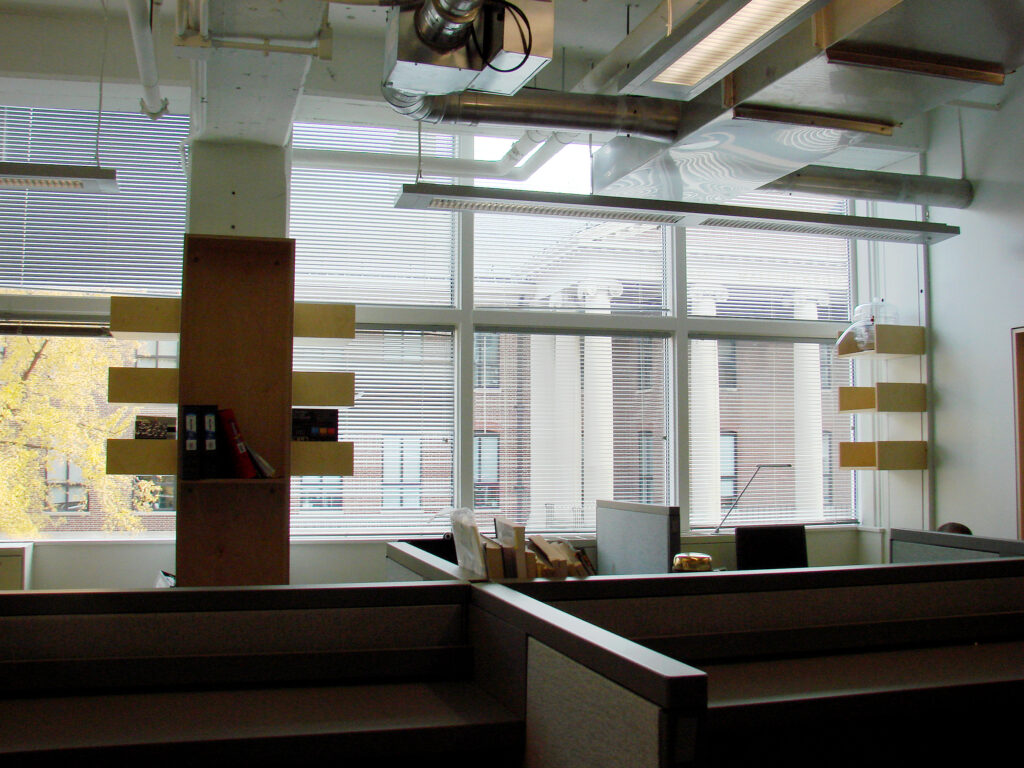
| LEED Rating System: | LEED for Commercial Interiors |
| LEED Rating Version: | 3.0 |
| Certification Level: | Platinum |
| Month Completed: | 09 |
| Year Completed: | 2010 |
| Client (School/Department): | SEAS |
Project Highlights
- Low-emitting paints, adhesives and sealants
- Efficient restroom fixtures reduce water consumption by 32% over standard fixtures
- 46% reduction in lighting power density (watts per sq. ft.) – (Current Green Building Standards require a minimum of 25%)
- A digital addressable lighting interface (DALI) system allows for sweep controls, time of day control, daylight harvesting, off hours zone control, occupancy sensors and dimming
- The use of a heat recovery (enthalpy) wheel in the exhaust system which transfers both heat and humidity into the incoming air, reducing the energy needed to condition the air by up to 75%
- 88% of the construction waste was recycled
- 16% of total value of materials consist of materials with recycled content
Project Summary
The Vlassak Laboratory is a 2,540 square foot lab, which occupies a portion of the third floor of the Gordon McKay Laboratory Building at 9 Oxford Street in Cambridge, MA. The newly renovated lab will accommodate and enhance the complex research of Professor Joost J. Vlassak, along with his team of undergraduate students, graduate students, postdoc’s and technical staff who develop and practice techniques for studying the mechanical behavior of thin films. The new lab will allow the group to address specific subjects and issues within material engineering such as the mechanical behavior of thin metal films, adhesion and delamination of multilayered structures containing low-k dielectrics, thin films of various alloy types, and various thin-film combinatorial approaches to alloy development. The renovated lab now contains a main lab, a wet lab, an optics lab, storage space, student offices and other private lab spaces. In support of Harvard University’s goal to reduce greenhouse gas emissions 30% below 2006 levels by 2016, inclusive of growth, Harvard School of Engineering and Applied Sciences (SEAS) and the project team were committed to sustainability throughout the duration of the project. This helped to guide decision making and inform the selection of materials, as well as the mechanical, electrical and plumbing (MEP) systems.
Ultimately, the Vlassak Laboratory achieved LEED-CIv3.0 Platinum certification.